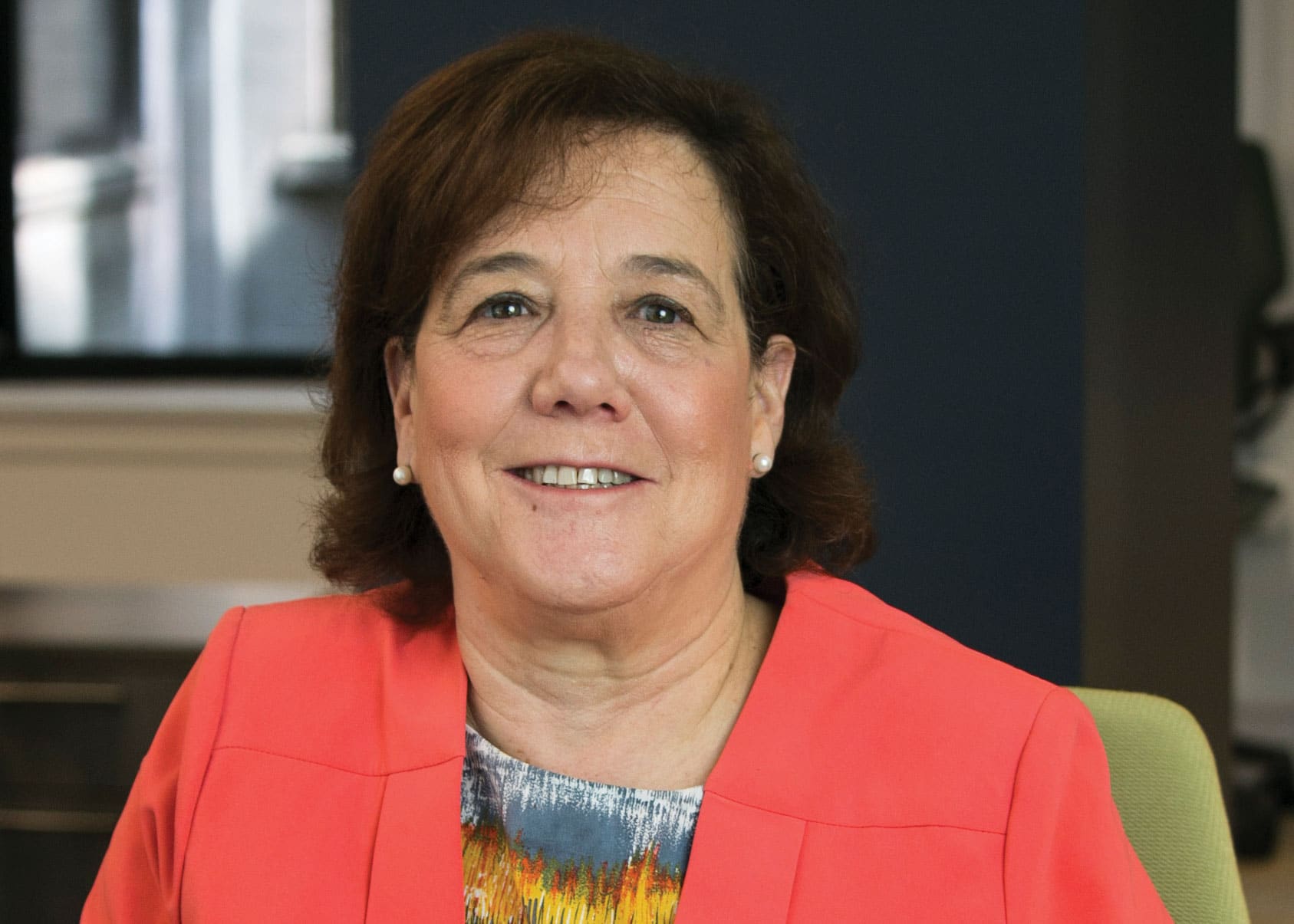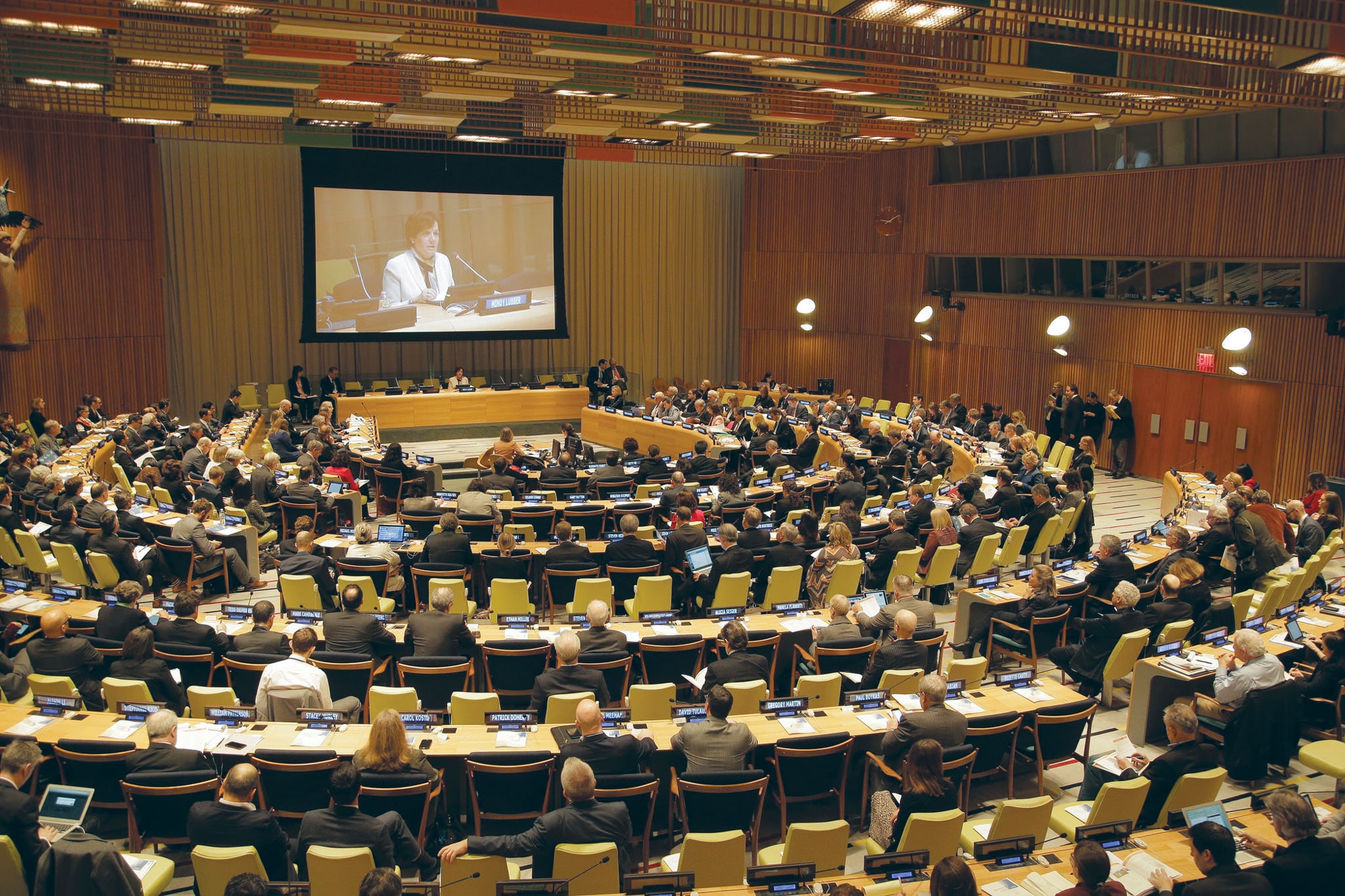
[Photo: Courtesy of Mindy Lubber]
“In 2017, more and more multinational companies and other large companies realize acting on sustainability is important for their market. They’re speaking out, and in the absence of political leadership they’re speaking out more.”
Making sustainable choices is not an issue to be addressed one person or even one company at a time; action must be taken on a larger scale. That’s what Ceres specializes in—working with companies and investors to create corporate responsibility to enact significant, long-lasting change using principles that date back to 1989, after the Exxon-Valdez oil spill.
Mindy Lubber, CEO and president of nonprofit Ceres, has been at the helm since 2003, working to create Ceres’ Roadmap for Sustainability, a corporate leadership program and blueprint for best practices for investors.
Lubber says the conversation on sustainability has changed considerably in the last 20 years, with companies genuinely interested in making better, greener choices, from what and how things are made on the production line to lowering energy use in their buildings. But there’s still a long way to go. We talked with Lubber to find out more about Ceres’ efforts.
gb&d: How did you get involved with Ceres?
Lubber: I spent most of my career as an advocate and lawyer, running the EPA office under President Clinton. When I left the EPA, I took a little bit of time to think about what I wanted to do. I decided we really needed to contextualize sustainability and environmental protection to all capital markets and companies with the largest investors—that these were as much their is\sues as environmental issues. When I joined Ceres in 2003, it had just launched a global reporting initiative that many thousand multinational companies now use for corporate reporting on disclosure of environmental and social issues.
gb&d: What are the biggest projects Ceres is involved in now?
Lubber: We’re working to implement increased disclosure on the front of companies and investors as it relates to climate risk, and what it will take to reach the commitments of the Paris Agreement. The U.S. pulling out of the Paris Agreement is unfortunate, but not the end of the world. If we can continue through our effort called “We Are Still In,” an effort to get companies and cities and investors to continue to make the adjustments they would have under the Paris Agreement, that could get us to where we need to go. We’re working with companies to keep the Paris Agreement goal of the global temperature rise 1.5-2 degrees Celsius below pre-industrial levels this century, looking at what kinds of changes a company has to make, and what it means to the company. We’re hoping to get companies to commit to 100% renewables over the next five years in addition to reducing their carbon footprint and supporting climate policy.
gb&d: What is Ceres doing on the policy side?
Lubber: We are hoping to keep—rather than seeing rolled back–fuel economy standards. We fought hard to get fuel economy standards for the average vehicle from 27 to 52 miles per gallon coming off manufacturing lines. Everybody had to agree to the standards, including oil companies. However, after President Obama left office, there have been movements to cut back on those standards.

Ceres CEO Mindy Lubber speaks at the 2016 Investor Summit on Climate Risk at the United Nations in New York. [Photo: Courtesy of Mindy Lubber]
We’re also working with several dozen companies to reduce their use of water and manage their overall custodianship of water in a much more comprehensive way.
gb&d: How does Ceres build leadership among networks of investors and companies to drive economic solutions for the biggest sustainability challenges?
Lubber: First, we work to change policy. If there’s a limit to the amount of carbon emissions, that will change hundreds of companies in one fell swoop, as is the case with the Clean Power Plan, which is being held up in the courts for fuel economy standards.
Second, through our day-to-day practices. We work with several hundred companies that are members, and with 125 companies who are members through our investor network. With companies, we create a model for what leadership should look like; we call it the Ceres Blueprint or the Ceres Roadmap for Sustainability. We work with each of the member companies to integrate the roadmap, which means making sure sustainability issues are being discussed at the top level of the company, boards and CEOs, as well as being fully transparent for what the company does for sustainability. We help companies integrate sustainability metrics into new buildings and facilities, as well as products. We work with the supply chain of each of the companies to supply more sustainability for them to set their own goals.
And finally it means, with many of these companies, to support policy changes. Whether it’s working with companies that want to figure out how to make themselves 100% renewable or how to have 25% of their vehicles electric or how to come up with zero-waste products and reuse everything in their waste.
With investors, it is working with them on how they analyze risk in their portfolios, what kind of companies they buy, what policy positions they take, and how they interact with the companies in their portfolios to get them to be more sustainable.
gb&d: What is Ceres doing with regard to clean energy policy?
Lubber: We work with hundreds if not thousands of companies who are starting to get to 100% renewables or change fuel economy standards. Creating change company by company or investor by investor will take longer than we have. It’s imperative to be working on climate change, because the timing of when it happens matters a lot. Whether we’re working on an existential threat or a non-manageable world threat, we want to make these threats that we can actually manage, which means we need to move faster than one company by one company or one sector by one sector. The only way to do that is by changing policy. We’ve worked in many states to support renewable portfolio standards, where a state might commit to 20% renewables in 2022.
gb&d: How have views of sustainability changed in business?
Lubber: The day before President Trump pulled out of Paris, we had an ad in The New York Times and The Wall Street Journal with 32 companies, from General Electric to Monsanto to Apple. In 2017, more and more multinational companies and other large companies realize acting on sustainability is important for their market. They’re speaking out, and in the absence of political leadership they’re speaking out more. No one looks at sustainability and says, “Why are you talking to me about water and climate change? We’re a big company, we don’t do that.” That discussion is long over.
gb&d: How is sustainability leadership changing on a company level?
Lubber: Companies are thinking about a number of things. For people who are looking for a job, they’re looking for a specific company. Every company’s competing for the best and the brightest, and those people are looking for companies that are sustainability leaders. So for these people, one of the most motivating features, along with culture and values, is sustainability support.
Whether it’s consumers who are shopping, employees, or investors, when a company is called out for being a major polluter, companies take a shareholder hit for reputational damage. They take hundreds of millions of dollars for advertising campaigns to maintain their reputation and their image. And one large irresponsible act could take away hundreds of millions of dollars in advertising.
gb&d: What does the future hold for sustainability?
Lubber: We’ve got a good start, but we’ve got a long way to go. We have thousands of companies that have to change and investors that have to change and policy that has to be implemented. If we’re going to get to the world that the Paris Climate Agreement called for, we need thousands and tens of thousands of companies changing their practices. We still have a ways to go, but I think that the wind is at our back.
